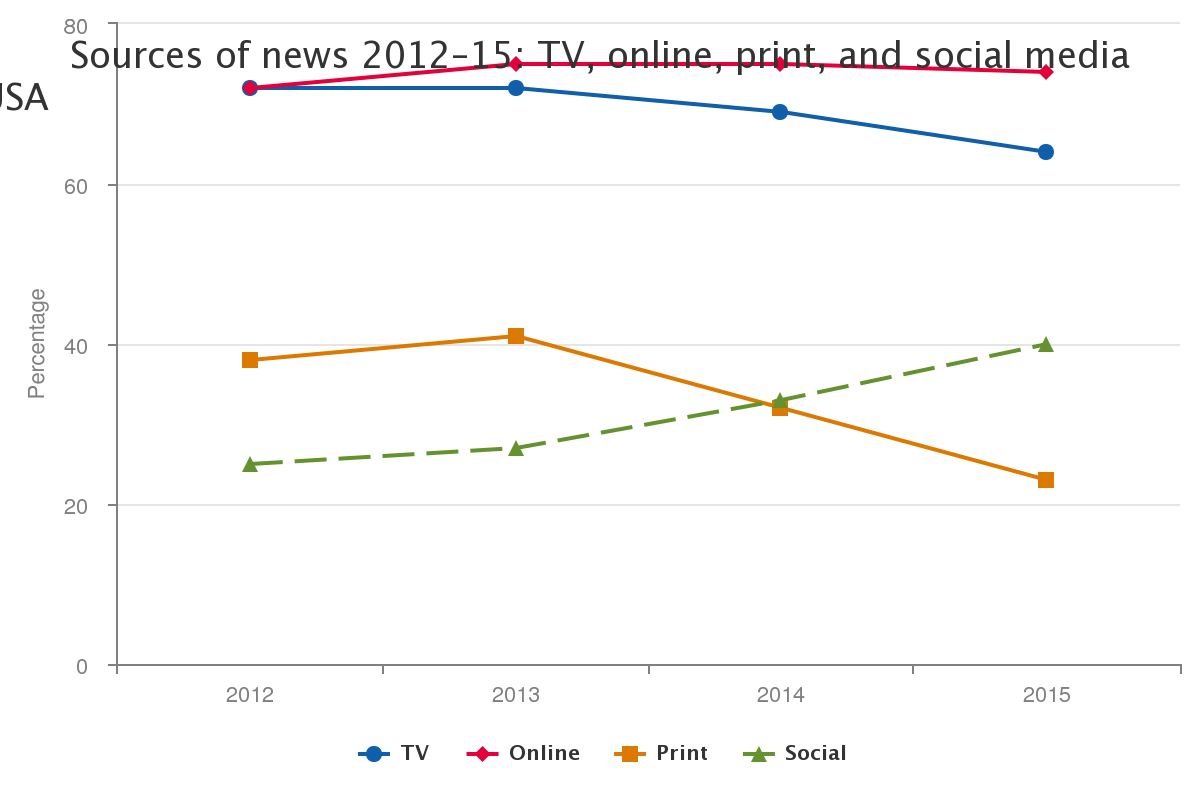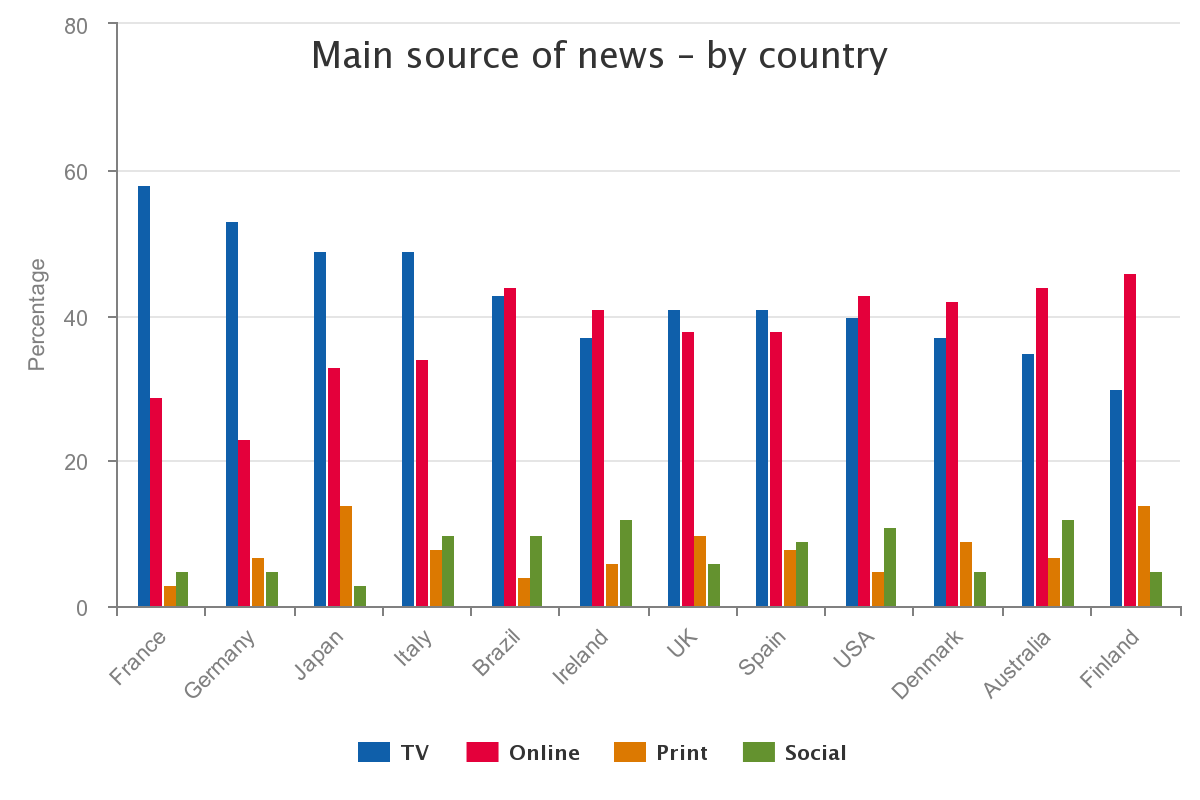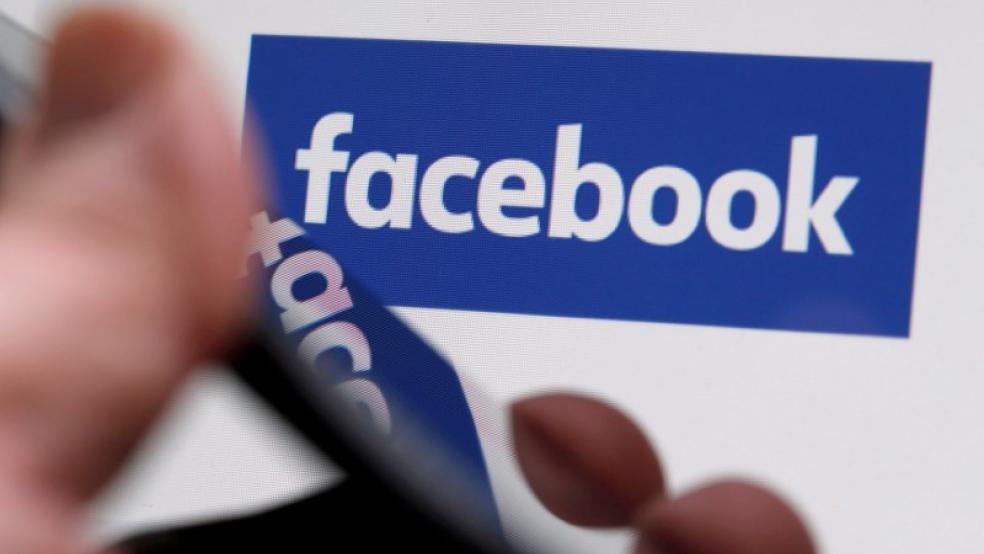The news for the news business hasn’t been good for years, but a new survey shows just how deeply the ongoing shift to social and mobile news consumption threatens more traditional media organizations.
Unsurprisingly, as digital news increasingly means mobile, social media continues to blow past those traditional news outlets — particularly newspapers — as the dominant source for users to find, read, watch, share or comment on what’s happening. Facebook is the leading social platform, with 41 percent of those polled saying they got or shared news through the network.
“We see the smartphone more clearly as the defining device for digital news with a disruptive impact on consumption, formats, and business models,” Nic Newman of the Reuters Institute wrote in a summary of the 2015 findings. “Our data suggest it provides an environment dominated by a few successful brands, with others struggling to reach a wider audience, both via apps and browsers.”
Related: The Long, Slow Death of Cable Just Reached a Tipping Point
Younger people now expect the news to come directly to them through online channels and in new formats, rather than them having to access it on their own. News companies have also found it’s hard to convince readers to pay for online content. Just 11 percent of people in the U.S. have either paid for online news content or accessed a subscription online news service in the past year.

The survey results help explain why nine news publishers made a deal with Facebook in May to launch “Instant Articles,” a feature that will allow them to publish articles directly to the social network’s mobile news feeds. Instant Articles allows stories to load more than 10 times faster than standard mobile web articles and readers can access the full content directly on Facebook. The launch partners that inked this deal include The New York Times, Buzzfeed, National Geographic, NBC, The Atlantic, The Guardian, BBC News, Speigel and Bild. In return for providing their content, the media organizations can either sell advertising that appears next to their stories and keep the revenue or let Facebook sell the ad space and take a 30 percent cut.
That might be a win-win situation right now, but the publishers have to be anxious that Facebook will lose interest in Instant Articles. In 2012, publishers like The Guardian and The Washington Post developed “social reader” apps, which allowed users to read entire articles through an app within Facebook. However, Facebook changed its algorithm so these articles and apps didn’t show up in news feeds as frequently, and readership plummeted.
With the new arrangement, news publications are admitting that Facebook is the Goliath in attracting readers, and the addition of Instant Articles will only deepen and strengthen its hold on users.
If traditional publishers are struggling in this evolving environment, television news providers are not quite the dinosaurs we make them out to be. The majority of people of across all ages and throughout 12 countries still receive their news from television, the Reuters Institute data found. But online news has surpassed television in the U.S., Denmark, Australia and Finland. The trend is clear, and it isn’t good for old-line news companies.

Top Reads from The Fiscal Times:





